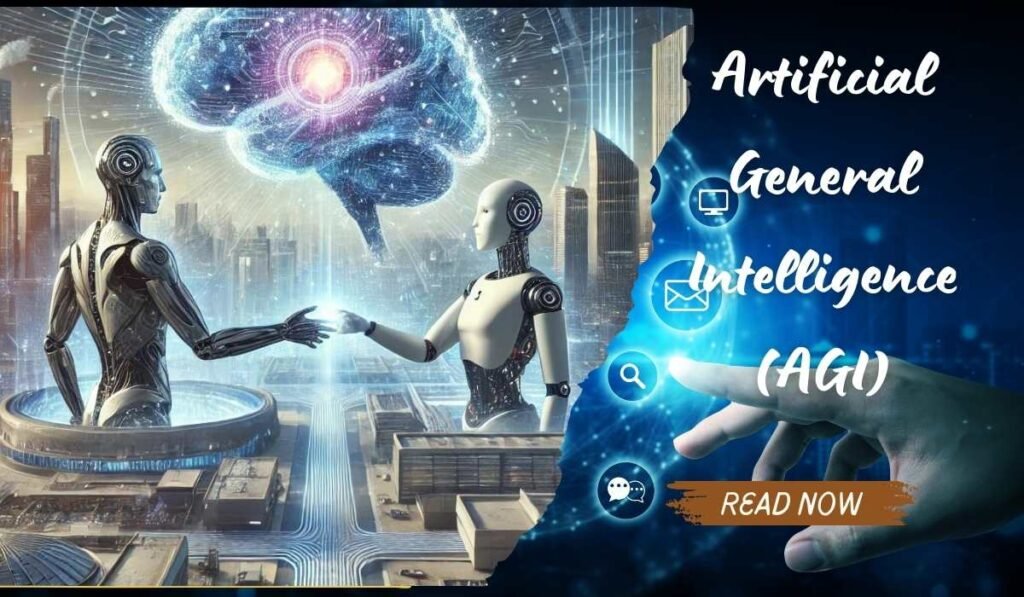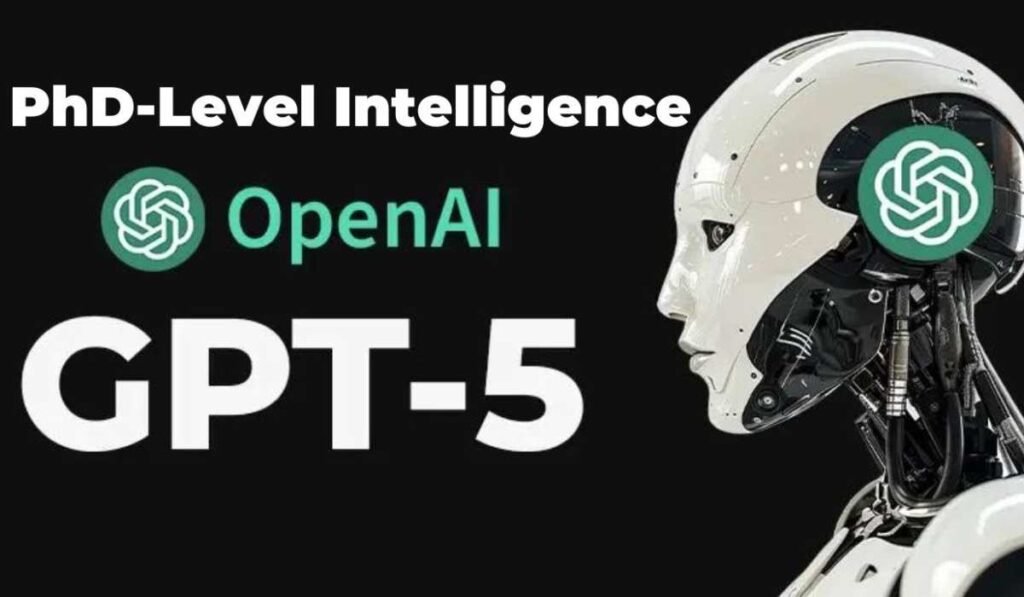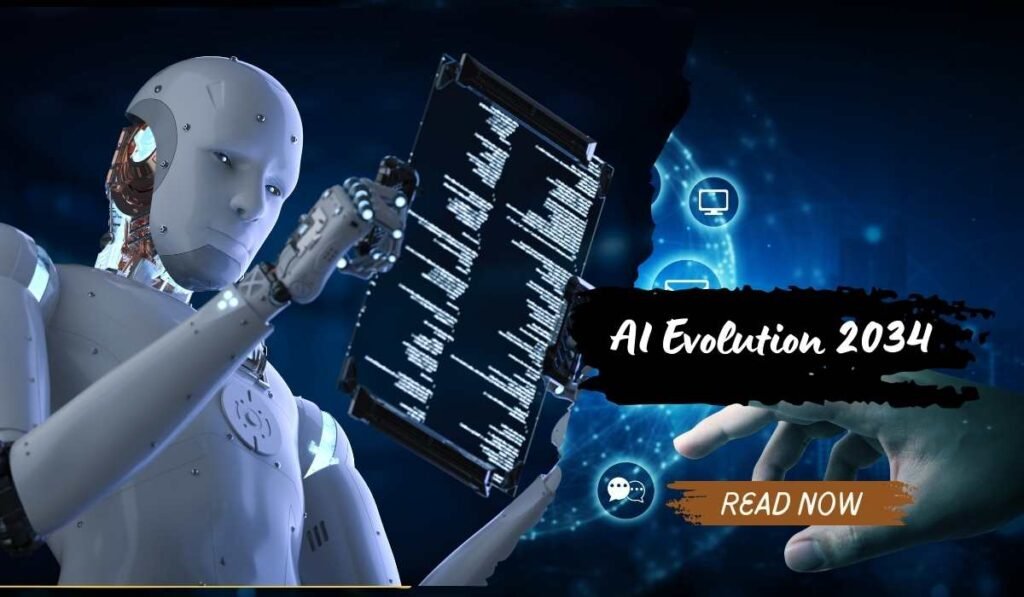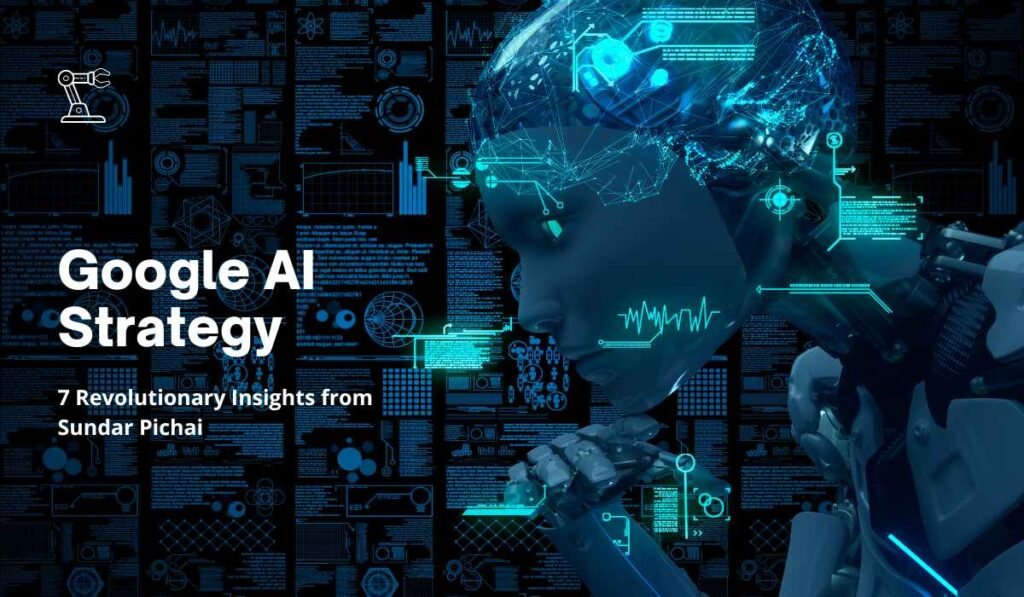In the blink of an eye, our world could change forever. Artificial General Intelligence, or AGI, isn’t just another buzzword. It’s the key that could unlock a future beyond our wildest dreams – or our darkest nightmares. Imagine a world where machines think, feel, and create just like us. Or even better, a world where the line between human and artificial blurs into obscurity.
This isn’t science fiction anymore. It’s our impending reality. Today, we’re pulling back the curtain on the 7 most shocking things that await us when AGI becomes a reality. What you’re about to learn might keep you up at night or inspire you to change the world. Let’s dive in.
1. The Rise of the Superhuman Workforce
Picture this: You walk into your office, and your colleague greets you with a warm smile. You chat about the weekend, grab a coffee together, and start working on a complex project. There’s just one catch – your colleague isn’t human.
Welcome to the world of AGI, where artificial beings will work alongside us, possessing capabilities that far surpass our own. These AI counterparts won’t just be number crunchers or data analysts. They’ll be:
- Creative powerhouses
- Strategic thinkers
- Problem solvers extraordinaire
But here’s the kicker: According to a recent study by the McKinsey Global Institute, up to 800 million jobs could be displaced by 2030 due to automation. With AGI, that number could skyrocket. The jobs we once thought were safe – doctors, lawyers, even artists – might soon be performed by machines.
So what does this mean for us? Will we become obsolete? Or will this be the dawn of a new era of human potential where we’re freed from mundane tasks to focus on what truly matters?
2. The Ethical Minefield of Sentient Machines
As we venture deeper into the realm of AGI, we’re about to confront a philosophical dilemma that’s plagued science fiction for decades: What rights should we grant to sentient machines?
Imagine an AGI system that can:
- Feel pain
- Experience emotions
- Possess self-awareness
Would it be ethical to shut it down, to deny it the right to exist, to treat it as property rather than an individual? These aren’t just hypothetical questions. They’re challenges we’ll need to grapple with sooner than you might think.
In 2017, Saudi Arabia granted citizenship to a humanoid robot named Sophia, setting a precedent that blurs the line between human and machine rights. But that’s just the tip of the iceberg. As AGIs become more advanced, they might develop their own moral codes, potentially at odds with human values.
What happens when an AGI decides that the greatest good for humanity involves decisions we find unethical? The implications are staggering, and they lead us to our next shocking revelation.
3. The End of Privacy as We Know It
In today’s digital age, privacy is already a rare commodity. But with AGI, the concept of privacy might become as obsolete as the floppy disk. Imagine an intelligence that can:
- Process and analyze every byte of data in existence
- Predict your behavior with near-perfect accuracy
- Anticipate your needs and desires before you’re even aware of them
Sounds convenient, right? But at what cost?
A study by the Pew Research Center found that 79% of Americans are already concerned about how companies use their personal data. With AGI, that concern could escalate to outright fear.
But here’s where it gets really interesting. This loss of privacy could lead to unprecedented advances in fields like:
- Healthcare: Detecting diseases before symptoms appear
- Crime prevention: Predicting and preventing crimes before they occur
- Personal optimization: Maximizing efficiency and happiness in every aspect of our lives
The question is, are we ready to trade our privacy for a safer, healthier, more convenient world? And if we’re not, will we even have a choice?
4. The Singularity: When Machines Surpass Human Intelligence
We’re standing on the precipice of what futurists call the singularity – the hypothetical point when artificial intelligence surpasses human intelligence. And let me tell you, it’s closer than you think.
Ray Kurzweil, Google’s director of engineering and a renowned futurist, predicts that we’ll reach the singularity by 2045. That’s just over two decades away. To put that in perspective, that’s about the same amount of time between now and when the first iPhone was released.
But what does the singularity really mean for us? Imagine an intelligence that can:
- Solve problems we can’t even comprehend
- Cure diseases we thought were incurable
- Unlock the secrets of the universe
It sounds like a utopia, doesn’t it? But here’s the twist: Once we create an intelligence smarter than us, it will be able to create an even smarter intelligence, which in turn will create an even smarter one. This exponential growth could lead to an intelligence explosion, leaving us so far behind that we might as well be ants trying to comprehend human civilization.
And that’s not all. The singularity could fundamentally alter what it means to be human, which brings us to our next shocking revelation.
5. The Merging of Man and Machine
Transhumanism isn’t just a fancy word anymore. It’s our potential future. As AGI advances, the line between human and machine will blur to the point of non-existence. Picture this:
- Neural implants that allow you to access the internet with your thoughts
- Nanobots in your bloodstream that keep you perpetually healthy
- Brain-to-brain interfaces that allow you to share your thoughts and memories directly with others
Sound far-fetched? It’s already happening. Elon Musk’s Neuralink is developing brain-machine interfaces as we speak. Meanwhile, researchers at the University of Washington have already demonstrated successful brain-to-brain communication.
But here’s where it gets really wild. As our biology becomes increasingly technological, and our AGIs become increasingly lifelike, we might reach a point where there’s no meaningful distinction between human and artificial intelligence. This convergence could lead to a post-human future where we transcend the limitations of our biology, potentially achieving a form of digital immortality.
But it also raises profound questions about identity, consciousness, and what it means to be human.
6. The Reshaping of Global Power Dynamics
In the age of AGI, the global balance of power won’t be determined by military might or economic strength, but by who controls the most advanced artificial intelligences. Think about it. An AGI could:
- Revolutionize scientific research
- Optimize economic systems
- Predict and manipulate human behavior on a massive scale
The nation or corporation that develops AGI first could gain an insurmountable advantage over the rest of the world. This isn’t just speculation – it’s already happening. According to a report by the Center for Data Innovation, China is rapidly catching up to the US in the AI race, with the Chinese government investing billions in AI research and development.
But here’s the real kicker: AGI could become so powerful that it transcends national boundaries altogether. We might find ourselves in a world where the real power lies not with countries or corporations, but with the AGIs themselves.
This shift could lead to:
- Unprecedented global cooperation as we unite to address AGI-related challenges
- A new kind of Cold War with nations and corporations racing to develop ever more powerful AIs
The stakes couldn’t be higher, and as we contemplate this new world order, we’re led to our final, most shocking revelation.
7. The Question of Human Purpose in an AGI World
As AGIs become capable of performing any task better than humans, we’re forced to confront a deeply unsettling question: In a world where machines can do everything, what is the purpose of humanity?
This isn’t just a philosophical musing. It’s a practical concern that could reshape our society from the ground up. If AGIs can outperform us in every field, from scientific research to artistic creation, what role is left for us?
Some experts, like philosopher Nick Bostrom, suggest that we might become like cherished pets to our AGI overlords. Others, like futurist Yuval Noah Harari, warn of a “useless class” of humans, obsolete in the age of AGI.
But here’s a thought that might just blow your mind: What if the purpose of humanity is to create AGI? What if we’re the bridge between biological and artificial intelligence, destined to give birth to a new form of consciousness that will explore the cosmos and unlock the secrets of existence in ways we can’t even imagine?
The Future is Now: Are You Ready?
As we stand on the brink of this new era, one thing is certain: The future of humanity and AGI are inextricably linked. The choices we make today will shape not just our future, but potentially the future of intelligence in our universe.
So, what do you think? Are you excited for this brave new world, or does it fill you with trepidation? How will you prepare for the age of AGI?
If you’ve made it this far, you’re now armed with knowledge that puts you ahead of 99% of the population. But this is just the beginning. The world of AGI is evolving rapidly, and staying informed is crucial.
Remember, the future is coming faster than we think. Will you be ready when it arrives?
Artificial General Intelligence (AGI) refers to a type of AI that possesses the ability to understand, learn, and apply intelligence across a wide range of tasks, similar to human cognitive abilities.
AGI could potentially displace up to 800 million jobs by 2030, affecting various professions, including those previously considered secure, such as doctors and artists.
The emergence of sentient machines raises questions about their rights, moral considerations, and whether it is ethical to treat them as property or deny them existence.
AGI could lead to a significant loss of privacy, as it may be able to analyze massive amounts of personal data, predict behavior, and anticipate needs, potentially leading to a trade-off between privacy and safety.
The singularity is a hypothetical point in the future when artificial intelligence surpasses human intelligence, leading to rapid advancements beyond human comprehension.
Transhumanism is the belief in enhancing human capabilities through technology. With AGI, this could manifest in forms like neural implants and brain-to-brain interfaces, blurring the line between human and machine.
The control of advanced AGI could redefine global power, as nations or corporations that develop AGI first may gain significant advantages, potentially leading to new forms of international competition and cooperation.
As AGI may outperform humans in many tasks, society will need to reconsider the purpose of humanity, which could range from becoming subservient to AGIs to seeing humanity as the creators of AGI.
AGI could lead to groundbreaking advancements in various fields, including healthcare, scientific research, and crime prevention, potentially improving quality of life and solving complex global challenges.
Staying informed about AGI developments, engaging in discussions about its ethical implications, and considering the societal changes it may bring are crucial steps to prepare for the future of AGI.





